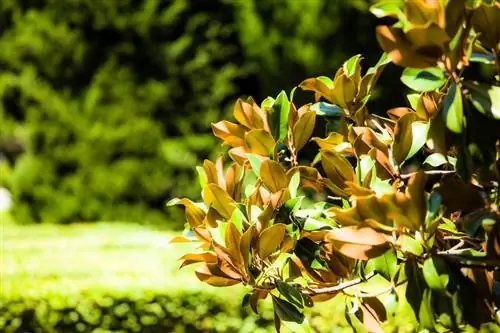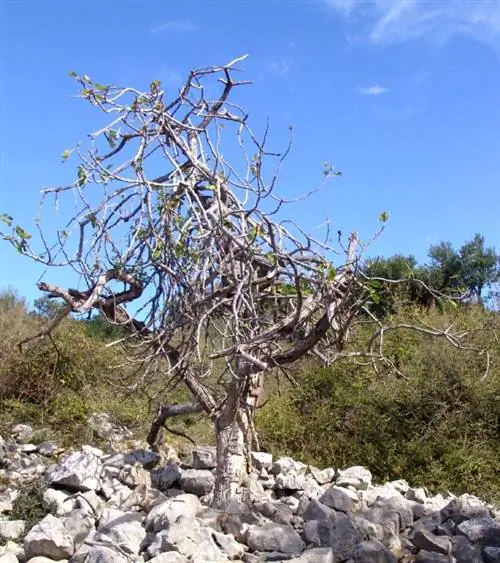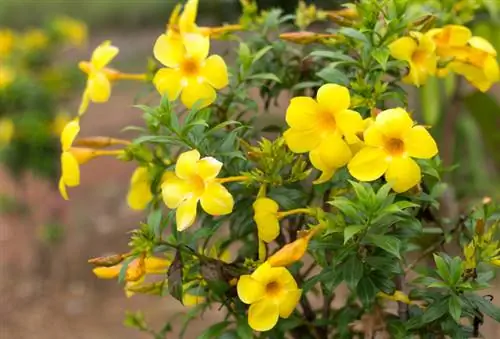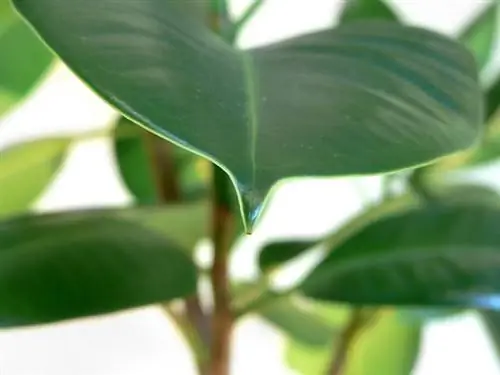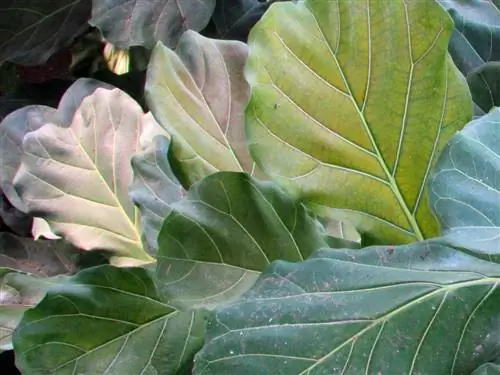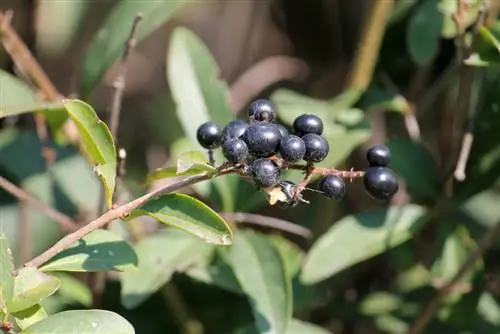- Author admin leonars@hobbygardeners.com.
- Public 2023-12-16 16:46.
- Last modified 2025-01-23 11:20.
Magnolia lovers everywhere read that these ancient trees are easy to care for, thrive almost everywhere and are also less susceptible to disease. Basically, this claim is true, but the magnolia is a real diva that is difficult to please.
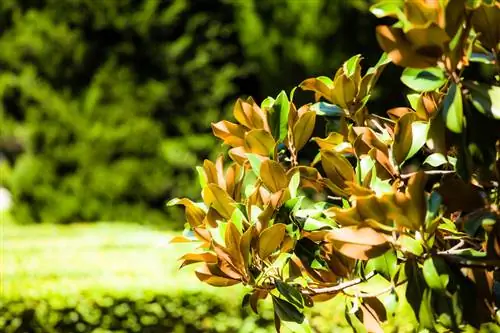
Why is my magnolia losing its leaves?
If a magnolia loses leaves, causes such as chlorosis (magnesium deficiency), lack of water, waterlogging, incorrect location, powdery mildew, rust disease or lime chlorosis due to iron deficiency can be the underlying cause. Depending on the cause, suitable countermeasures include fertilization, watering, transplanting or the use of fungicides.
Leaf loss can have various causes
First of all: Losing leaves in autumn is completely normal for most magnolias, unless they are an evergreen variety. Many species of magnolia shed their leaves in autumn to prepare for winter. In spring, depending on the type of magnolia, new leaves are formed either before or after flowering. However, if the leaf loss occurs in spring or summer, your magnolia will not feel well. There are many reasons for this, although the possible discoloration of the falling leaves can give you a clue as to the reason. In the table below we have clearly presented the most common causes of falling leaves and the corresponding countermeasures.
| Leaf discoloration | Possible cause | Countermeasure |
|---|---|---|
| yellow / light green | Chlorosis / deficiency (mostly magnesium) | fertilize |
| brown | during prolonged drought, lack of water | water |
| brown | If there is a lot of humidity, there may be waterlogging | ensure more dryness / possibly implement it |
| yellowish to brown | wrong location (e.g. calcareous soil) | implement or soil improvement |
| gray to white spots | Mildew | Home remedies or fungicides, cutting |
| yellow top of leaf, yellow-brown spots on underside of leaf | Rust disease | Home remedies or fungicides, cutting |
| yellow (if located near a house wall) | Calcium chlorosis with simultaneous iron deficiency | Fertilize with iron chelate or transplant |
Transplanting often causes leaf drop
Another cause of leaf loss can also be a recent planting or transplanting, for example by planting a magnolia that was previously kept in a pot in the garden or moving an older magnolia. In such a case, root damage often occurs or you even have to prune the roots. The plant then drops some leaves because the reduced roots cannot supply all of the above-ground parts. Magnolias that have been transplanted from the pot, on the other hand, initially strive to develop new roots and therefore shed leaves.
Tips & Tricks
Most magnolia species do not like calcareous soils, although some specimens may have thrived in such soils for years. However, slightly acidic, humus-rich and loose soil is better. However, make sure that it is not too rich in humus, as an oversupply will also lead to leaf drop. By the way, acidic soils are often low in magnesium.

